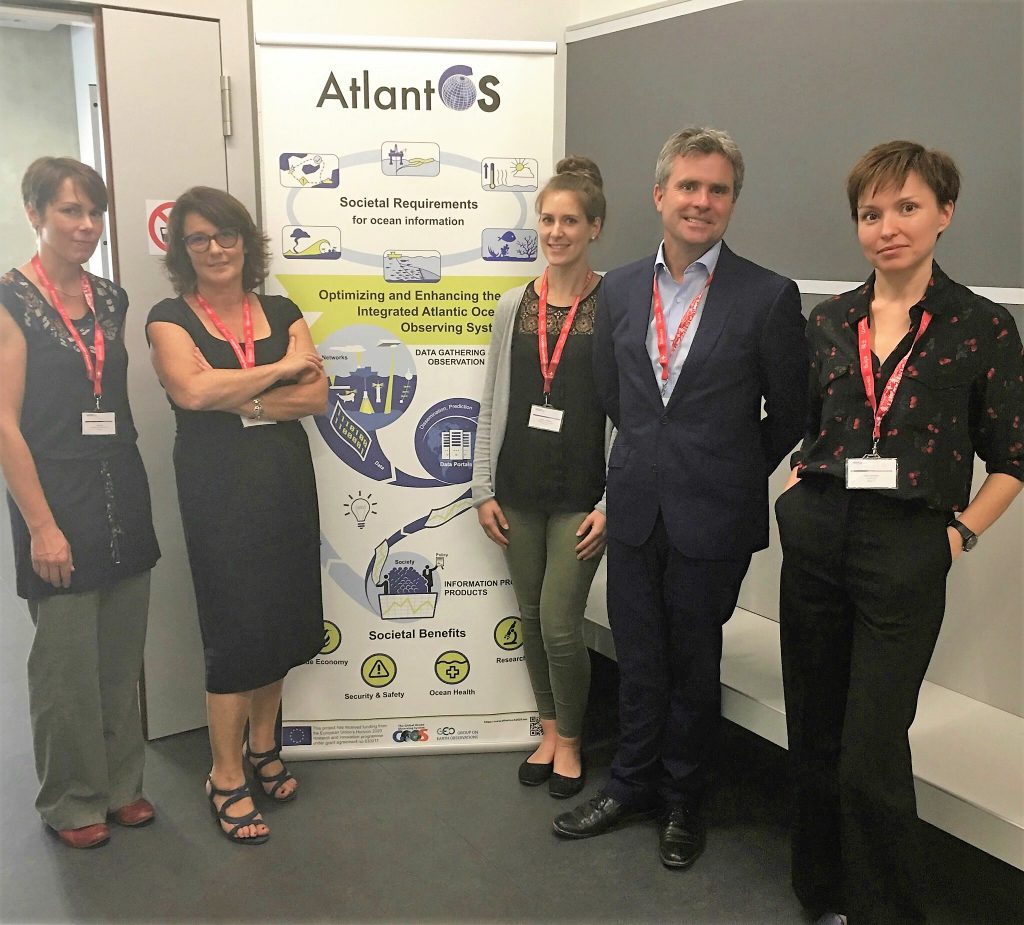
SDG14 breakout participants and co-chairs at the EuroGEOSS workshop, from left: Anja Reitz, GEOMAR, Michèle Barbier, Institute for Science and Ethics, Sandra Ketelhake, GEOMAR, Glenn Nolan and Dina Eparkhina, EuroGOOS
The EuroGEOSS workshop took place in Geneva from 12 to 14 September. At the workshop, the H2020 AtlantOS project and EuroGOOS co-organized and co-chaired a breakout session “Monitoring for FAIR data principles – how could European expertise foster the implementation of SDG 14 objectives?” on 13 September 2018.
The breakout session discussed how ocean observing experts can link their knowledge, data, and best practices with the Sustainable Development Goals (SDGs), particularly with the SDG 14 targets and indicators. With support from UN Environment, an international team of semantic technology experts has developed a FAIR-compliant knowledge representation resource (an ontology) for the SDG process. Ontologies express, integrate, harmonise, and expose human knowledge on the web, allowing computers a means to ‘understand’ what in situ and remote data and information holdings are about. Furthermore, the session discussed how the European initiatives and projects as well as GEO link with the SDG targets and how the work carried out is implementing ethics in marine research and data management.
The session’s conclusions and recommendations to EuroGEOSS included:
- Recognize achieving SDGs requires sustained and comprehensive Earth observation systems incl. both in situ and remote sensing systems;
- Policy users will use the EO-generated knowledge only if it considers multidisciplinary stakeholder perspectives;
- User-centric approach is welcome;
- Promote multidisciplinary methodologies;
- Help integrate open data, promote standards and interoperability;
- Help transparency, communication and common terminology;
- Leverage best practices;
- Apply ethics values in data acquisition and management;
- Help ensuring SDG interface ontology and FAIR principles are shaped and applied to European data systems;
- Help make the connection between European policies and larger initiatives including the essential climate and ocean variables and the SDGs.
Both EuroGOOS and AtlantOS were involved in other sessions of the workshop. AtlantOS organised a hands-on session on 13 September to illustrate how ocean observing applications produced within the project have fostered the optimisation and enhancement of the Atlantic Ocean Observing System.
EuroGOOS presented the EOOS poster and explained the EOOS progress in a lightning talk.
All presentations will be made available on the EuroGEOSS website. The AtlantOS newspiece about the breakout and the hands-on sessions is available here.
The post Ocean Observing showcases at the EuroGEOSS workshop appeared first on EuroGOOS.

















